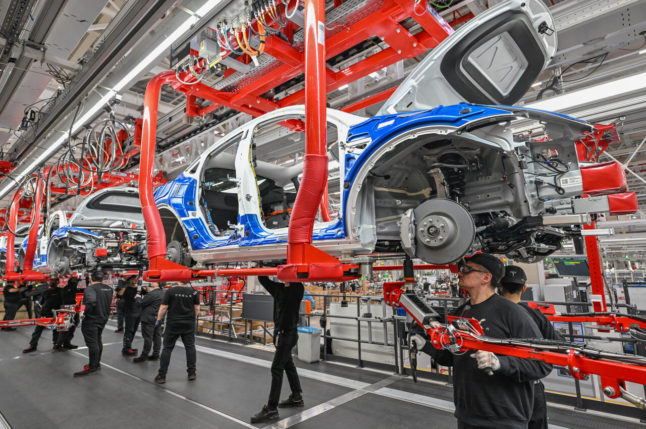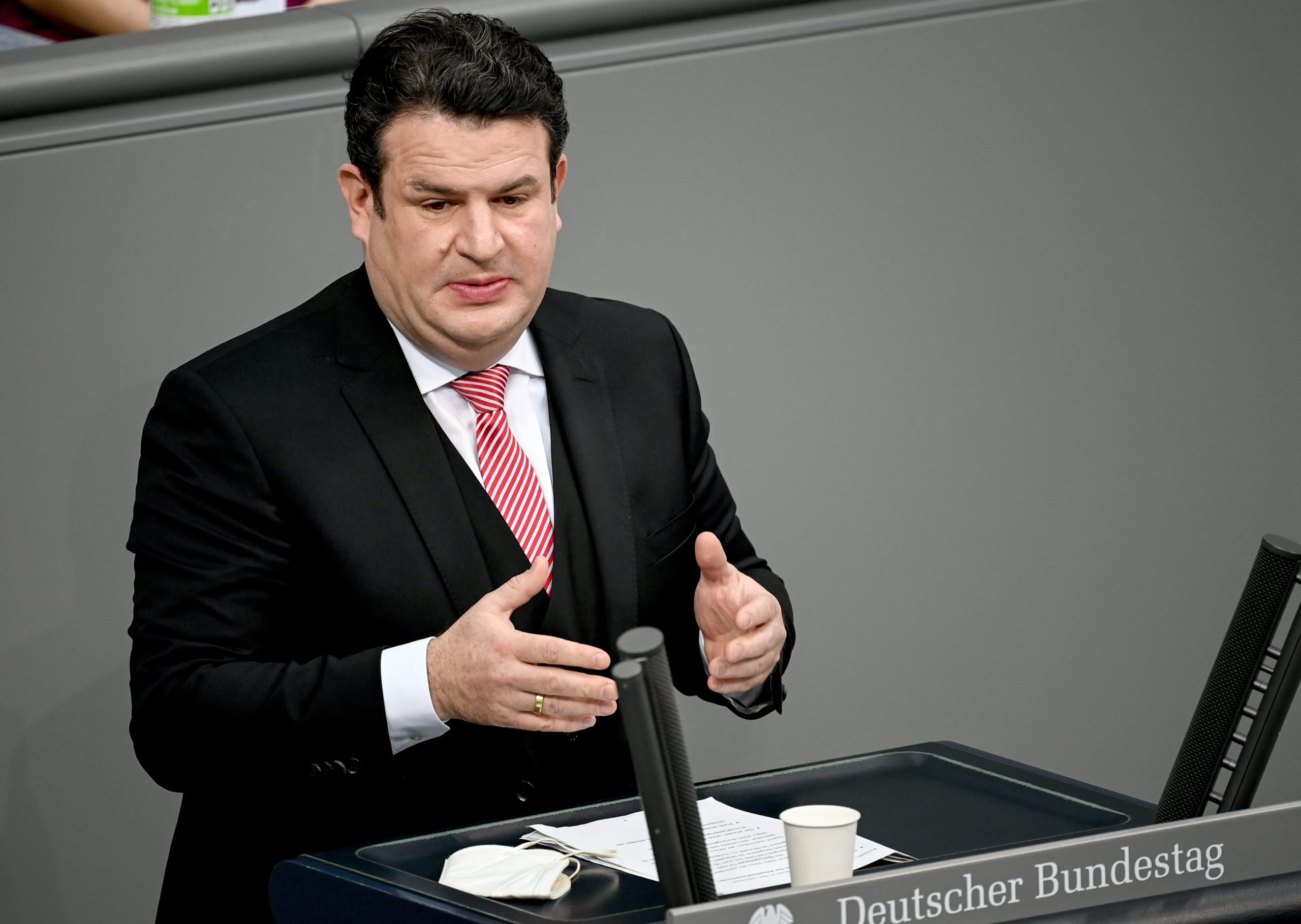The US company said it had filed an application for the expansion of the Grünheide site with the regional environment ministry of Brandenburg state.
The plans will be available for public consultation from Wednesday and citizens will have two months to register any objections, the ministry said.
In a statement, Tesla said it wants to double “production capacity to 1,000,000 vehicles” annually. It also plans to ramp up battery storage production capacity at the Grünheide gigafactory from 50 gigawatt hours annually to “100 gigawatt hours”.
READ ALSO: ‘Danke Deutschland!’: Elon Musk hands over first ‘Made in Germany’ Teslas
As well as enlarging the existing facilities, the proposals would require the construction of a new production hall. The number of employees could rise from around 10,000 currently “to possibly 22,500”, Tesla said.
The Elon Musk-owned company did not give a timeline for the project.
The plant is currently churning out around 5,000 electric cars a week — amounting to 260,000 a year.
If Tesla’s plans are approved, the Gruenheide factory would become Germany’s largest car factory, according to the Handelsblatt financial daily, behind Volkswagen’s Wolfsburg site with a production capacity of 800,000 vehicles per year.
The Gruenheide factory opened last year after an arduous two-year approval and construction process dogged by administrative and legal obstacles, including complaints from residents worried about the site’s environmental impact.
The factory’s water usage in particular has been a key concern among locals.
In an apparent bid to ease those worries, Tesla said the “contractually agreed quantities of fresh water will be sufficient” for the larger factory as well.
Germany’s powerful IG Metall union welcomed Tesla’s committment to the Brandenburg region but voiced concern about “the stark contradiction” between the ambitious plans and recent job cuts at the factory.
“Before the plant is expanded, the improvement of working conditions in Gruenheide must now finally have priority,” IG Metall’s Dirk Schulze said in a statement on Monday.




 Please whitelist us to continue reading.
Please whitelist us to continue reading.
Member comments